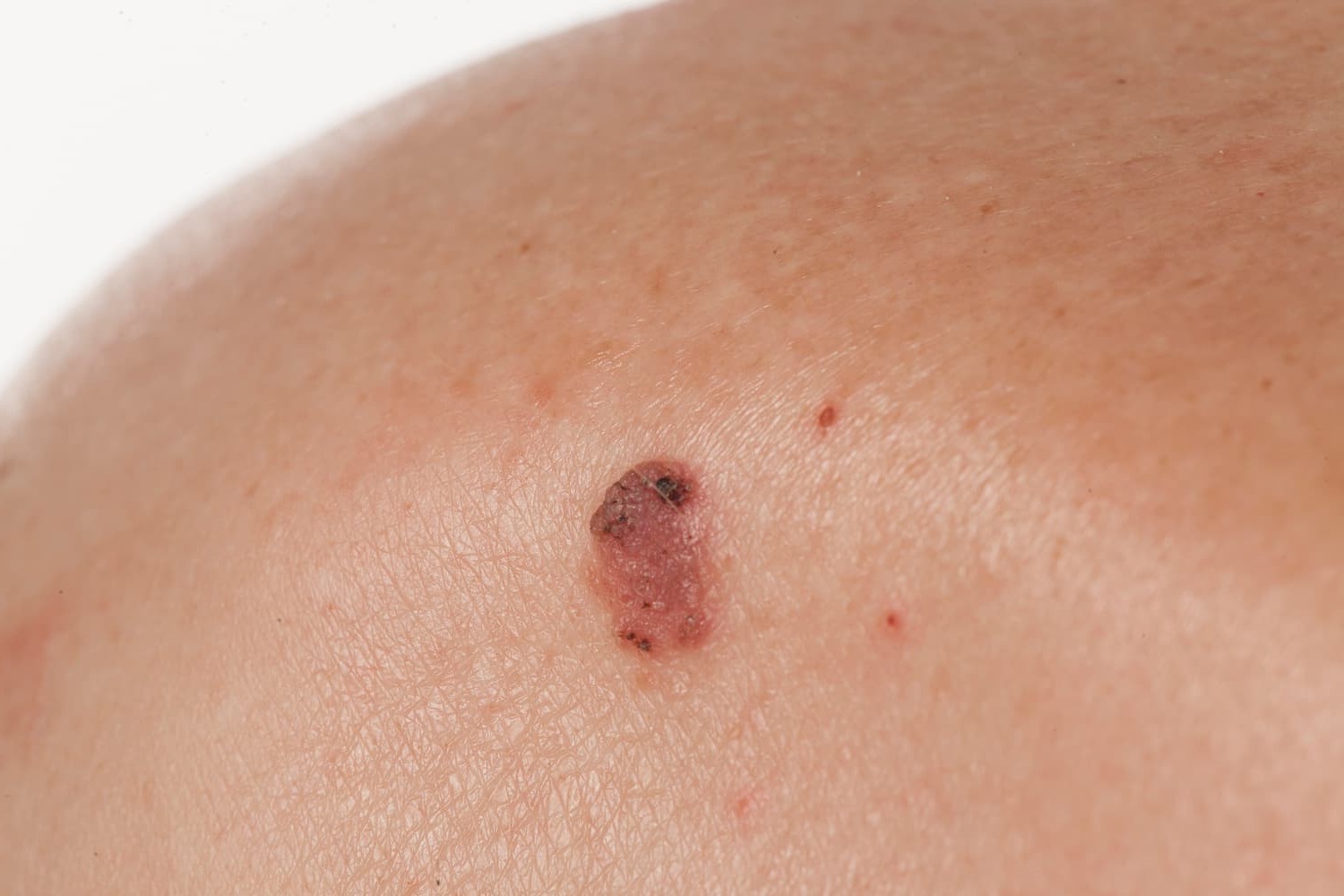
Squamous Cell Carcinoma (SCC) is a type of skin cancer that arises from the squamous cells, which make up the middle and outer layers of the skin. SCC is the second most common form of skin cancer, often caused by prolonged exposure to ultraviolet (UV) radiation from the sun or tanning beds. While it can appear anywhere on the body, it most frequently develops on areas exposed to the sun, such as the face, ears, neck, and hands. Early detection and treatment are crucial because SCC can grow and spread to other parts of the body if left untreated. Understanding the risk factors, symptoms, and preventive measures can help reduce the likelihood of developing this potentially serious condition.
Key Takeaways:
- Protect Your Skin Regularly check your skin for any changes, wear sunscreen, and seek shade during peak sun hours to reduce the risk of developing Squamous Cell Carcinoma. Early detection is key for effective treatment.
- Stay Informed and Connected If diagnosed with Squamous Cell Carcinoma, follow your treatment plan, protect your skin, and stay updated on new treatments. Joining a support group can provide valuable connections and support.
What is Squamous Cell Carcinoma?
Squamous Cell Carcinoma (SCC) is a type of skin cancer that begins in the squamous cells. These cells are found in the outer layer of the skin. Understanding SCC can help in early detection and treatment.
- SCC is the second most common form of skin cancer.
- It often appears as a red, scaly patch or a sore that doesn’t heal.
- SCC can develop on any part of the body but is most common in areas exposed to the sun.
- People with fair skin are more likely to develop SCC.
- Chronic sun exposure is a significant risk factor for SCC.
Symptoms of Squamous Cell Carcinoma
Recognizing the symptoms of SCC can lead to early diagnosis and better outcomes. Here are some common signs to watch for.
- A persistent, scaly red patch with irregular borders.
- An open sore that bleeds, crusts, or persists for weeks.
- A raised growth with a central depression.
- A wart-like growth that may crust or bleed.
- A rough, thickened, or scaly area on the skin.
Causes and Risk Factors
Understanding what causes SCC and the risk factors involved can help in prevention. Here are some key points.
- Prolonged exposure to ultraviolet (UV) radiation from the sun or tanning beds.
- Having a history of sunburns, especially in early life.
- Exposure to certain chemicals, like arsenic.
- A weakened immune system increases the risk of SCC.
- Human papillomavirus (HPV) infection can also be a risk factor.
Diagnosis of Squamous Cell Carcinoma
Early diagnosis of SCC is crucial for effective treatment. Here’s how SCC is typically diagnosed.
- A dermatologist will perform a physical examination of the skin.
- A biopsy is often required to confirm the diagnosis.
- Imaging tests may be used if there’s a concern that cancer has spread.
- Dermoscopy, a tool that magnifies the skin, can help in examining suspicious areas.
- Blood tests are not typically used to diagnose SCC.
Treatment Options for Squamous Cell Carcinoma
Various treatment options are available for SCC, depending on the stage and location of cancer. Here are some common treatments.
- Surgical excision involves cutting out the tumor and some surrounding tissue.
- Mohs surgery is a precise technique that removes cancer layer by layer.
- Cryotherapy uses extreme cold to freeze and destroy cancer cells.
- Radiation therapy may be used if surgery isn’t an option.
- Topical treatments, like creams or ointments, can be effective for early-stage SCC.
Prevention of Squamous Cell Carcinoma
Preventing SCC involves protecting your skin from harmful UV radiation. Here are some tips to reduce your risk.
- Use sunscreen with a high SPF every day, even on cloudy days.
- Wear protective clothing, like hats and long sleeves, when outdoors.
- Avoid tanning beds and artificial UV light sources.
- Seek shade during peak sun hours, typically from 10 a.m. to 4 p.m.
- Regularly check your skin for any changes and consult a dermatologist if you notice anything suspicious.
Prognosis and Survival Rates
The prognosis for SCC varies depending on several factors, including the stage at diagnosis and the patient’s overall health. Here’s what you need to know.
- Early-stage SCC has a high cure rate when treated promptly.
- The five-year survival rate for localized SCC is over 95%.
- If SCC spreads to lymph nodes or other organs, the prognosis is less favorable.
- Regular follow-up appointments are crucial to monitor for recurrence.
- Lifestyle changes, like quitting smoking, can improve the prognosis.
Interesting Facts about Squamous Cell Carcinoma
Here are some lesser-known facts about SCC that might surprise you.
- SCC can also occur in areas not exposed to the sun, like the mouth or genitals.
- Organ transplant recipients have a higher risk of developing SCC.
- SCC is more common in men than women.
- People with a history of skin cancer are at higher risk for developing SCC.
- SCC can sometimes be mistaken for other skin conditions, like eczema or psoriasis.
Research and Advances in Squamous Cell Carcinoma
Ongoing research continues to improve the understanding and treatment of SCC. Here are some recent advances.
- Immunotherapy is being explored as a treatment option for advanced SCC.
- Genetic research is helping to identify mutations that contribute to SCC.
- New topical treatments are being developed to target early-stage SCC.
- Advances in imaging technology are improving the accuracy of SCC diagnosis.
- Clinical trials are ongoing to find more effective treatments for SCC.
Living with Squamous Cell Carcinoma
Living with SCC involves regular medical care and lifestyle adjustments. Here are some tips for managing life with SCC.
- Follow your treatment plan and attend all follow-up appointments.
- Protect your skin from further sun damage by using sunscreen and wearing protective clothing.
- Maintain a healthy lifestyle, including a balanced diet and regular exercise.
- Join a support group to connect with others who have SCC.
- Stay informed about new treatments and research developments in SCC.
Final Thoughts on Squamous Cell Carcinoma
Squamous cell carcinoma (SCC) is a common type of skin cancer that can be serious if not treated promptly. Knowing the risk factors like excessive sun exposure, fair skin, and a history of sunburns can help in prevention. Regular skin checks and using sunscreen are simple yet effective measures to reduce your risk. Treatments range from topical medications to surgical procedures, depending on the stage and location of the cancer. Early detection is key, so don't ignore any unusual skin changes. If you spot something suspicious, consult a healthcare professional immediately. Staying informed and proactive can make a significant difference in managing and preventing SCC. Remember, your skin is your body's largest organ; taking care of it is crucial for overall health. Stay safe, stay vigilant, and protect your skin.
Frequently Asked Questions
Was this page helpful?
Our commitment to delivering trustworthy and engaging content is at the heart of what we do. Each fact on our site is contributed by real users like you, bringing a wealth of diverse insights and information. To ensure the highest standards of accuracy and reliability, our dedicated editors meticulously review each submission. This process guarantees that the facts we share are not only fascinating but also credible. Trust in our commitment to quality and authenticity as you explore and learn with us.


